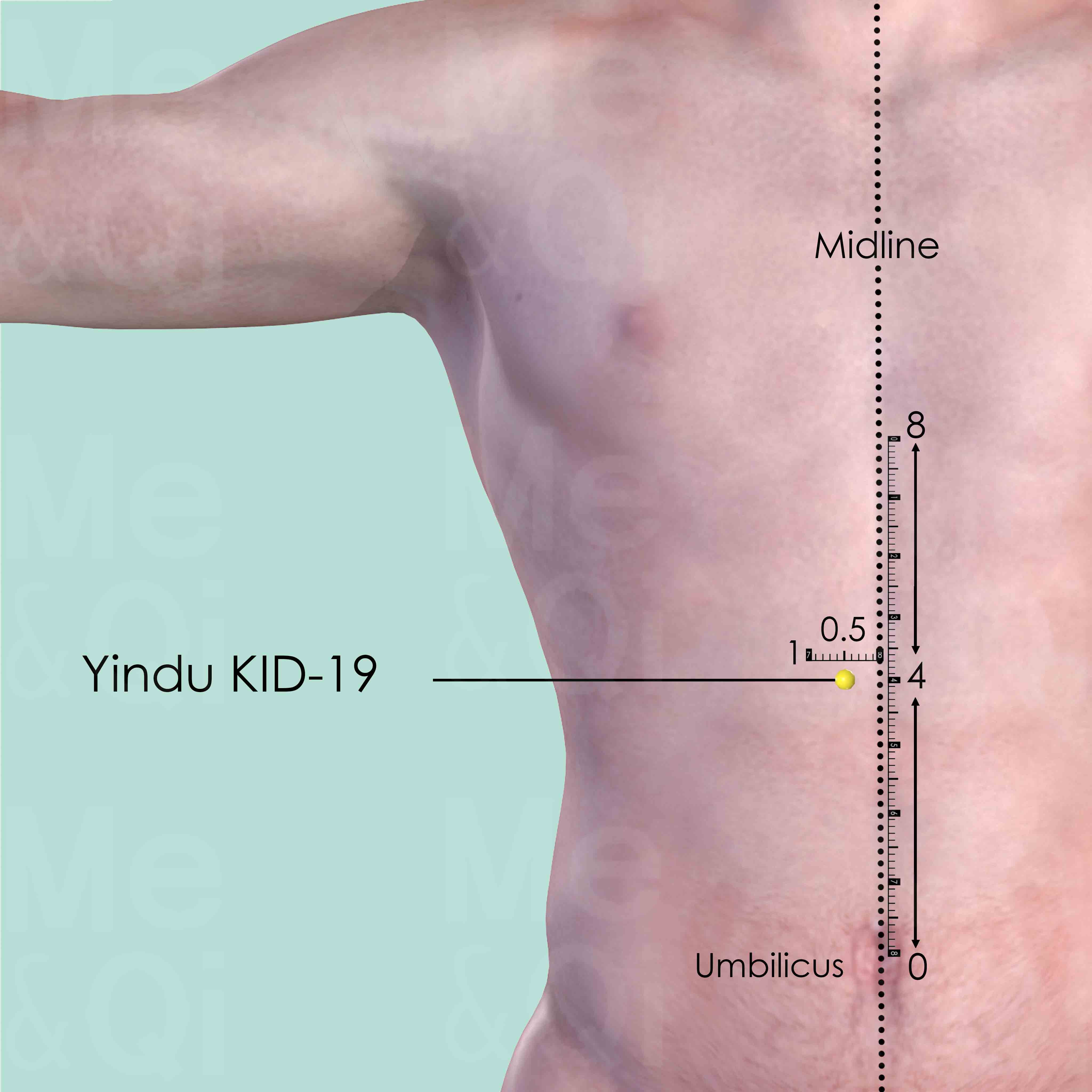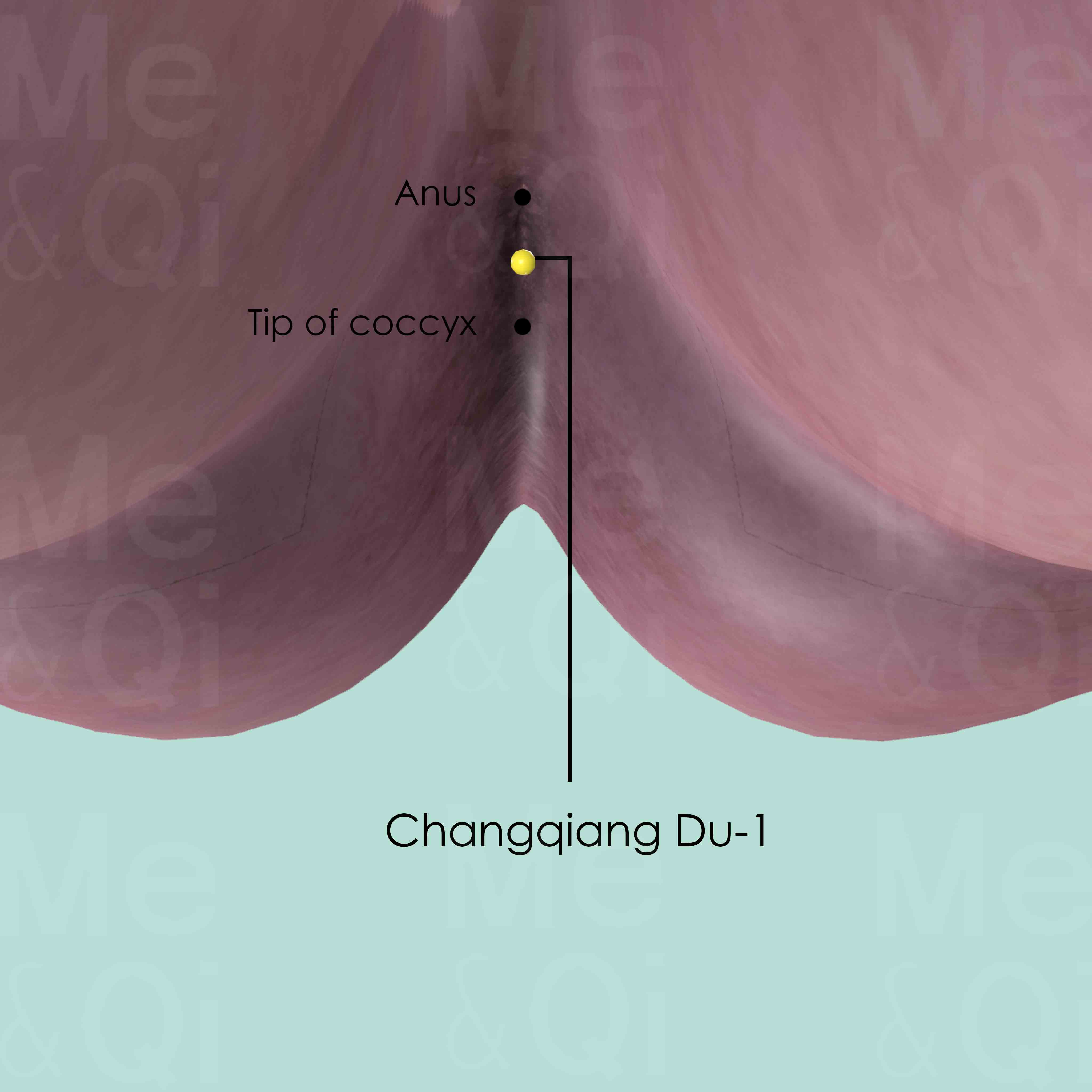Difficulty With Defecationaccording to TCM
Symptom family: Stool and Bowel Irregularities
Did you mean? Constipation
What is Difficulty with Defecation?
Difficulty with defecation encompasses a range of symptoms related to challenges in passing stools. It can manifest as infrequent bowel movements, hard stool passage, straining to defecate, and a general sense of discomfort during bowel evacuation.
This condition reflects disruptions in the body's natural digestive and elimination processes, potentially leading to discomfort, bloating, and a sense of incomplete evacuation. Recognizing these symptoms is critical for addressing underlying health issues and restoring digestive health.
How does TCM view Difficulty with Defecation?
Traditional Chinese Medicine (TCM) offers a unique perspective on difficulty with defecation, attributing it to imbalances in the body's Qi (energy flow), disruptions in the Spleen and Stomach's functions, or imbalances in the Yin and Yang energies.
Unlike Western medicine, which often focuses on symptom management, TCM seeks to identify and treat the root cause of the symptom, considering factors like emotional stress, diet, and lifestyle. By assessing the individual's overall Qi flow and organ health, TCM practitioners aim to restore balance and alleviate symptoms through a combination of dietary advice, herbal remedies, and acupuncture.
Acupoints for Difficulty With Defecation
In addressing difficulty with defecation, TCM emphasizes the importance of stimulating specific acupoints to improve bowel function and alleviate symptoms. The Bladder Channel offers several key points, including Baihuanshu (BL-30) and Ciliao (BL-32), known for their effectiveness in benefiting the anus, strengthening the lower back and legs, and facilitating urination and defecation.
Additionally, the Kidney Channel's points like Yindu (KID-19) and Yongquan (KID-1) play a vital role in regulating Qi in the Middle Burner and nourishing Yin, contributing to the overall balance necessary for smooth defecation. The Governing Vessel's Changqiang (Du-1) is another crucial point, especially for regulating the lower orifices and ensuring proper bowel movement. Through targeted acupuncture treatments focusing on these points, TCM aims to harmonize the body's functions, relieve discomfort, and promote healthy defecation patterns.
Explore below some acupoints used to address difficulty with defecation, organized by meridian.
- By Meridian
- Bladder Channel
- Kidney Channel
- Governing Vessel
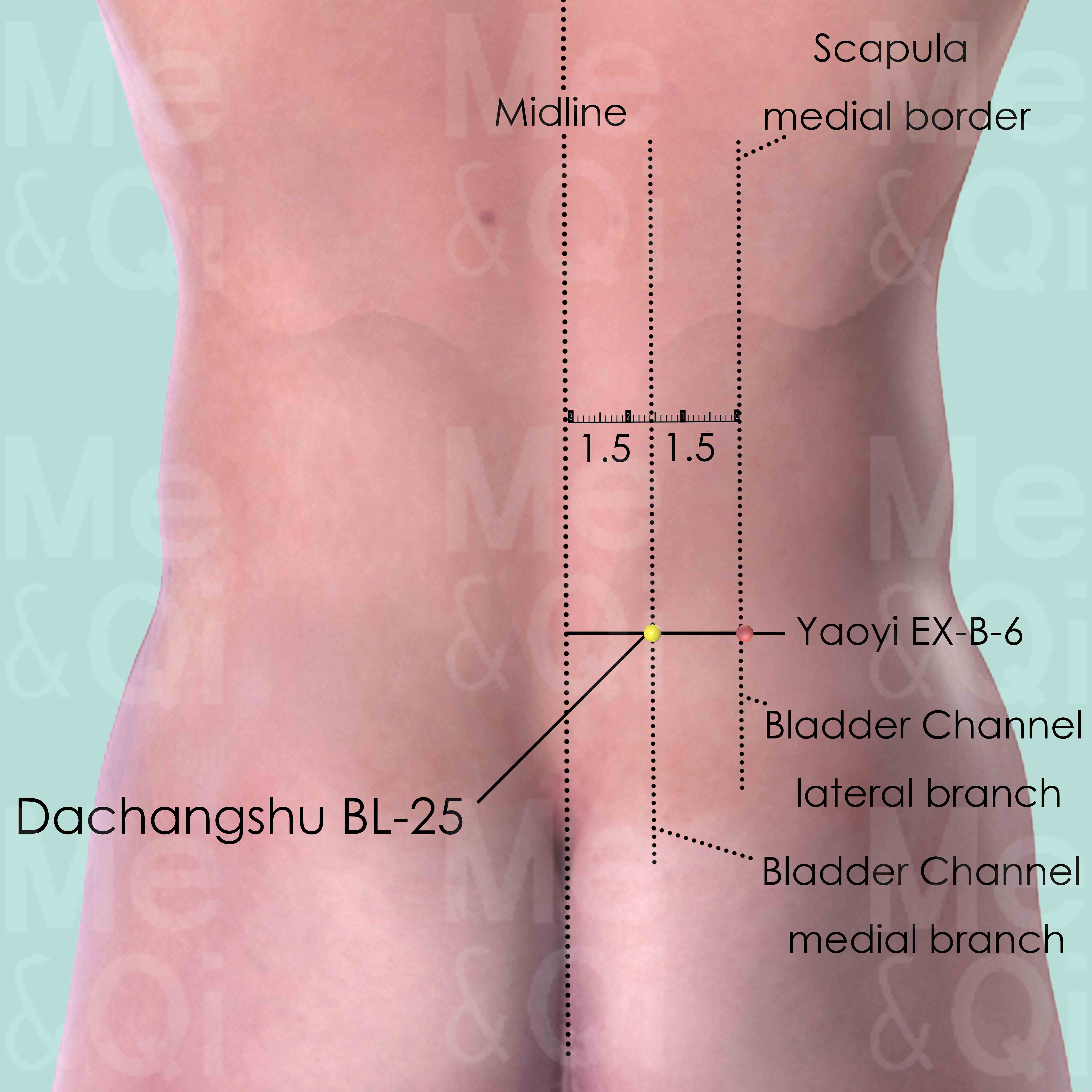
Dachangshu BL-25
1.5 cun lateral to the lower border of the spinous process of the 4th lumber vertebra (L4).
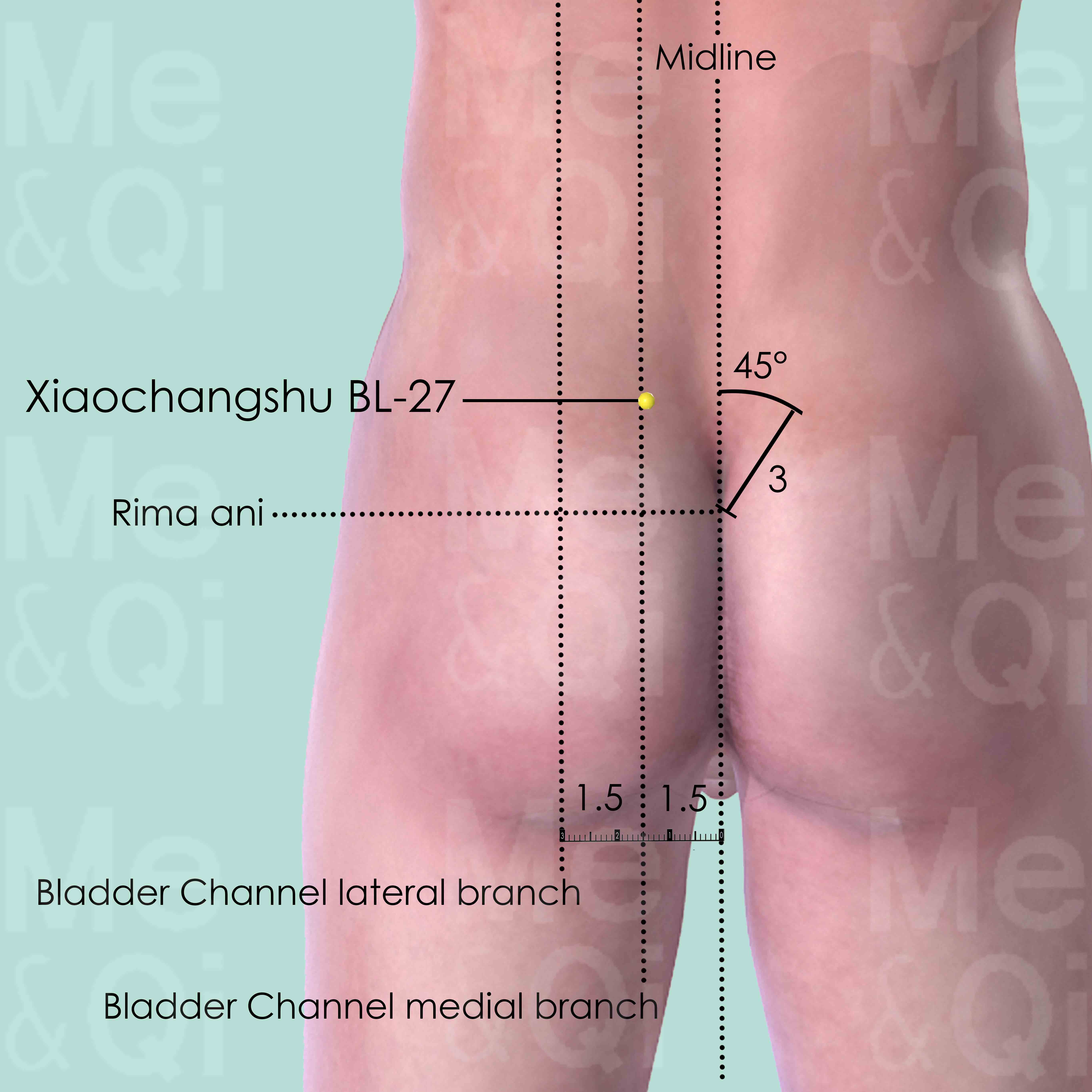
Xiaochangshu BL-27
At the level of the 1st posterior sacral foramen, 1.5 cun lateral to the posterior midline.
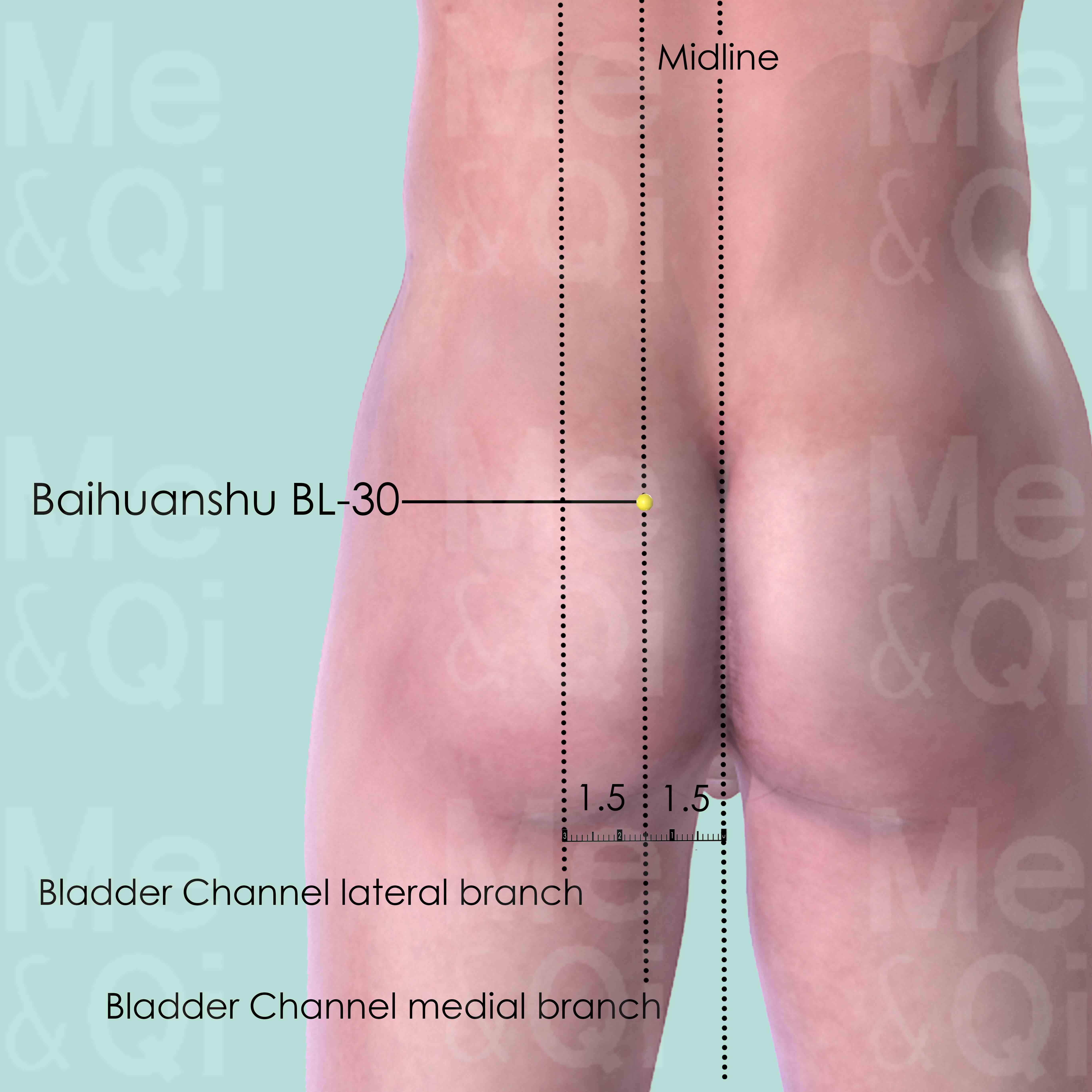
Baihuanshu BL-30
At the level of the 4th posterior sacral foramen, 1.5 cun lateral to the posterior midline.
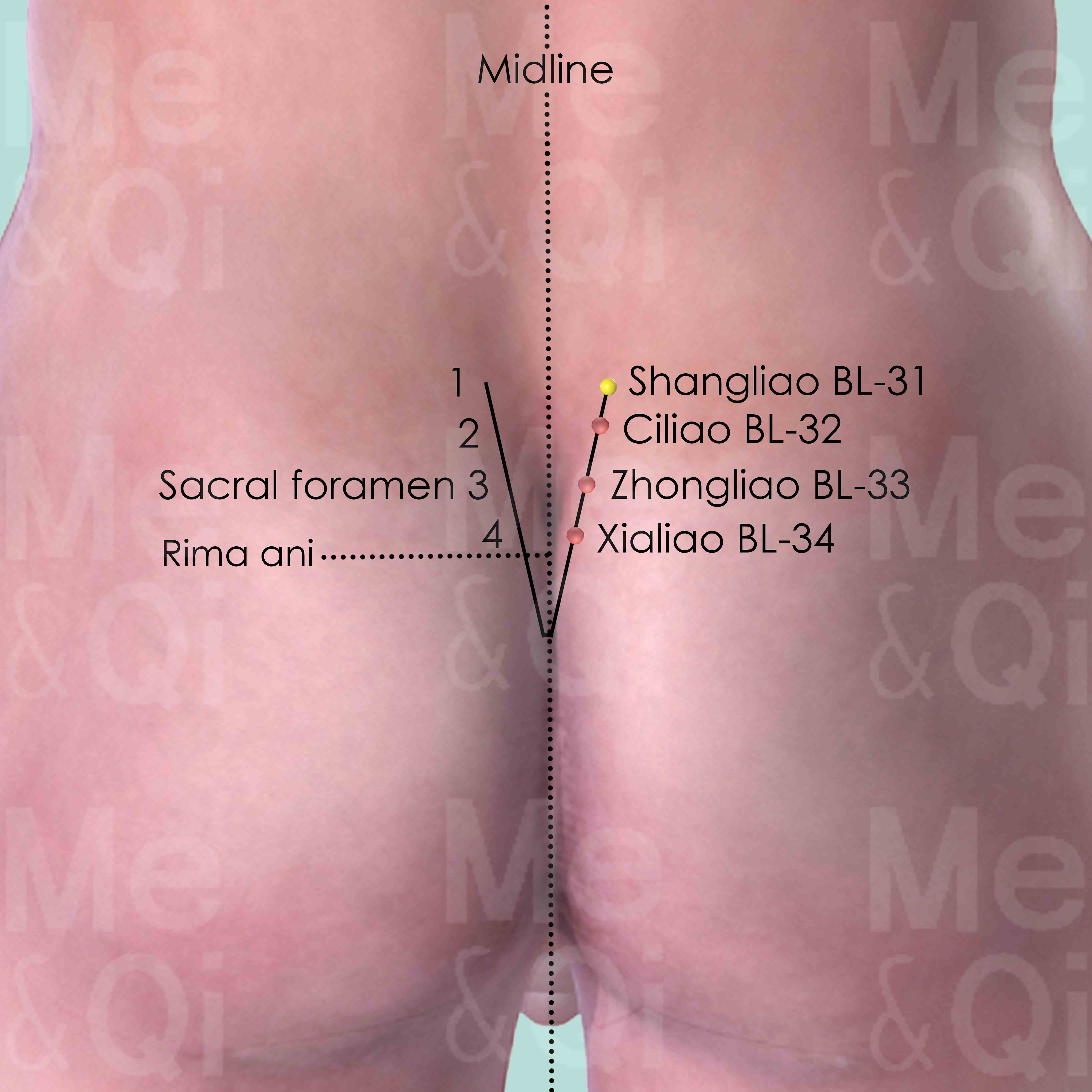
Shangliao BL-31
In the 1st posterior sacral foramen, about midway between the posterior superior iliac spine (PSIS) and the midline.
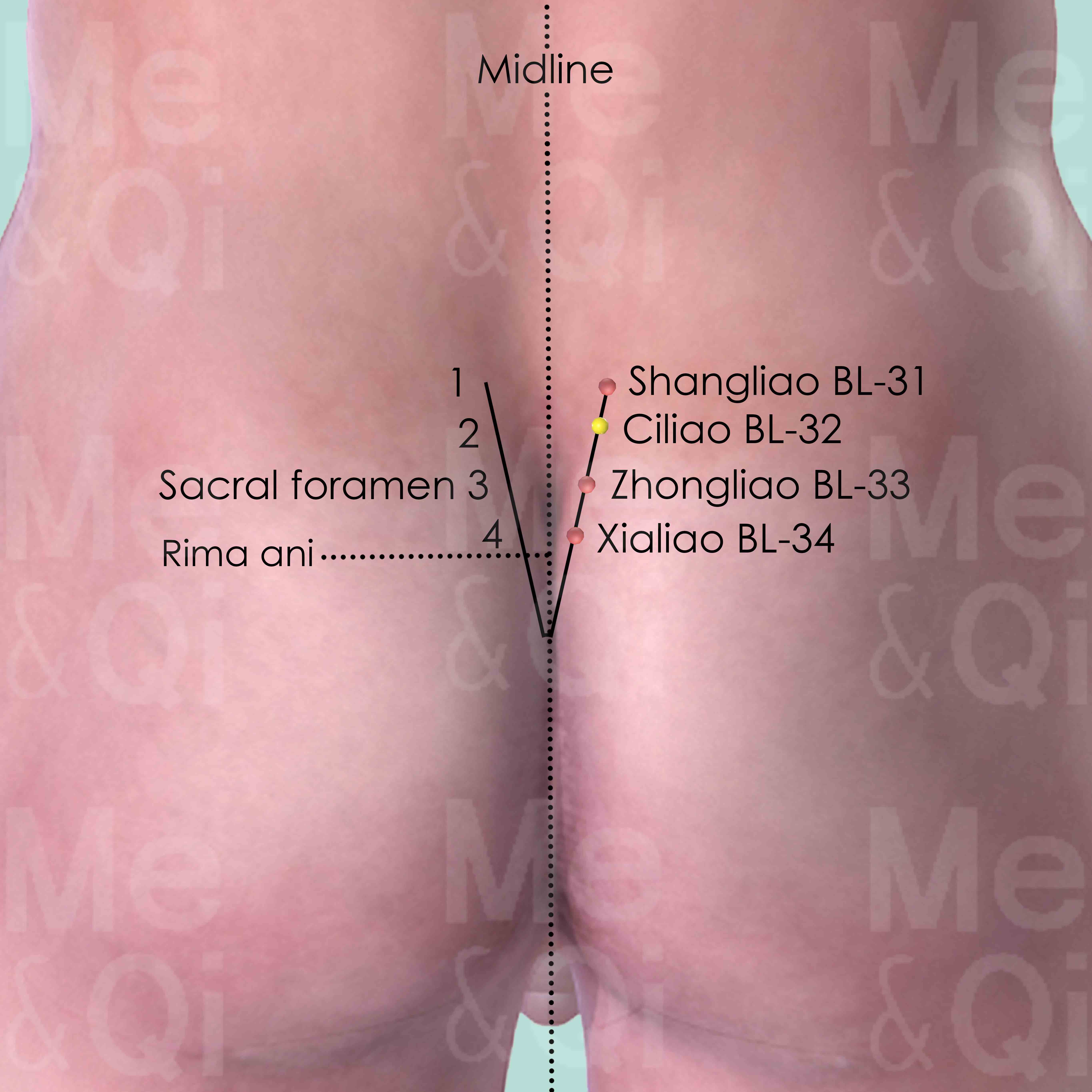
Ciliao BL-32
In the 2nd posterior sacral foramen, about midway between the posterior superior iliac spine (PSIS) and the midline.
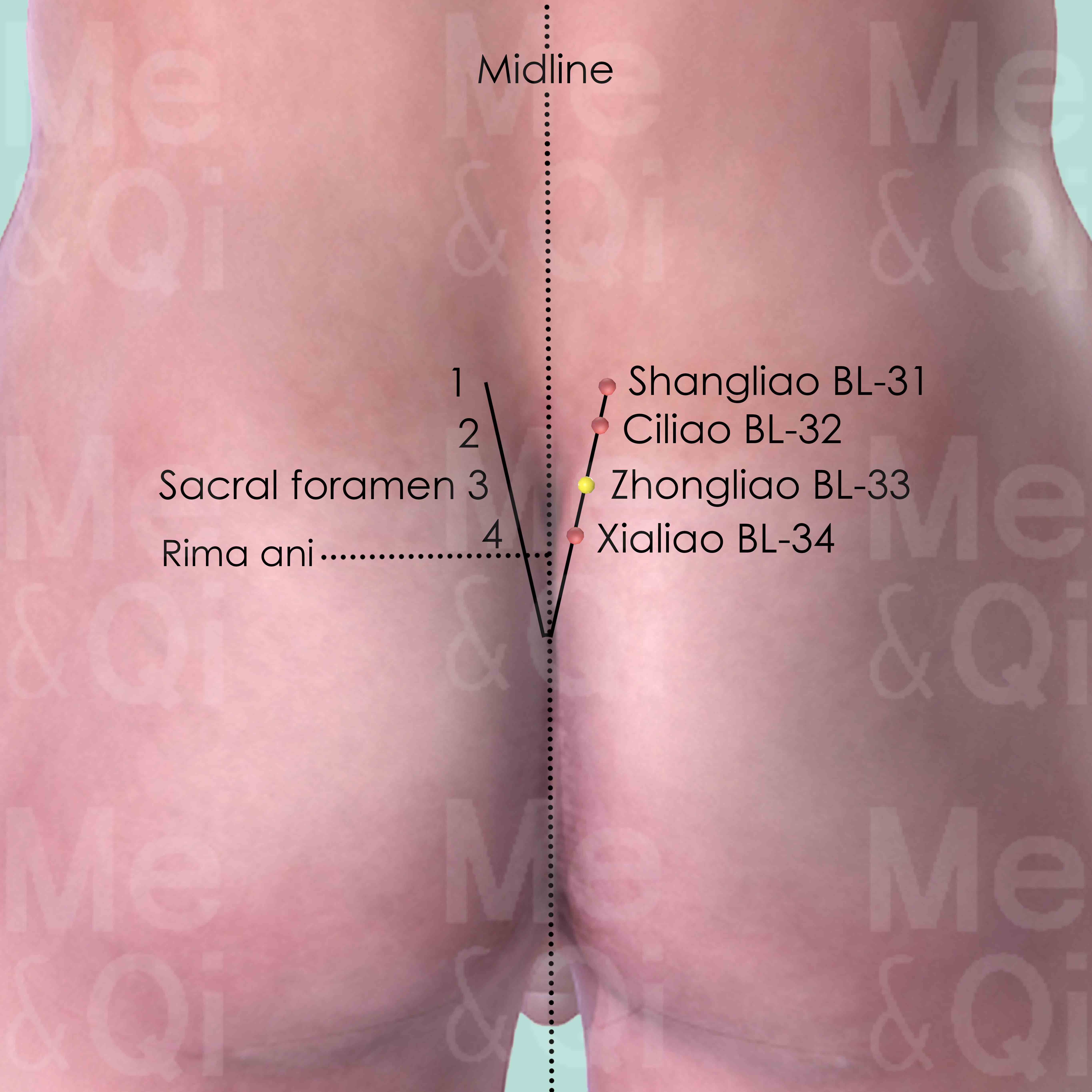
Zhongliao BL-33
In the 3rd posterior sacral foramen, between the posterior superior iliac spine and the midline.
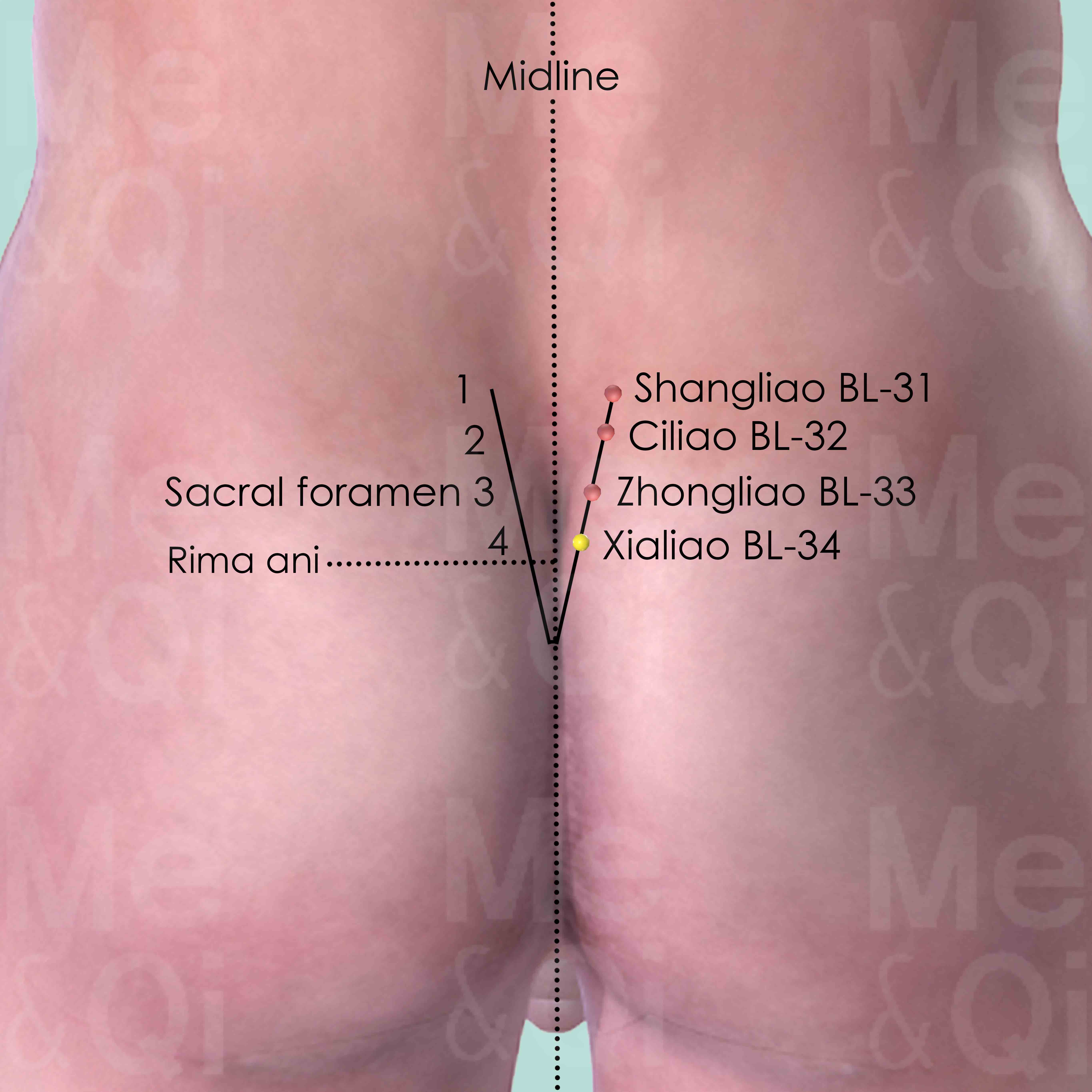
Xialiao BL-34
In the 4th posterior sacral foramen, between the posterior superior iliac spine and the midline.
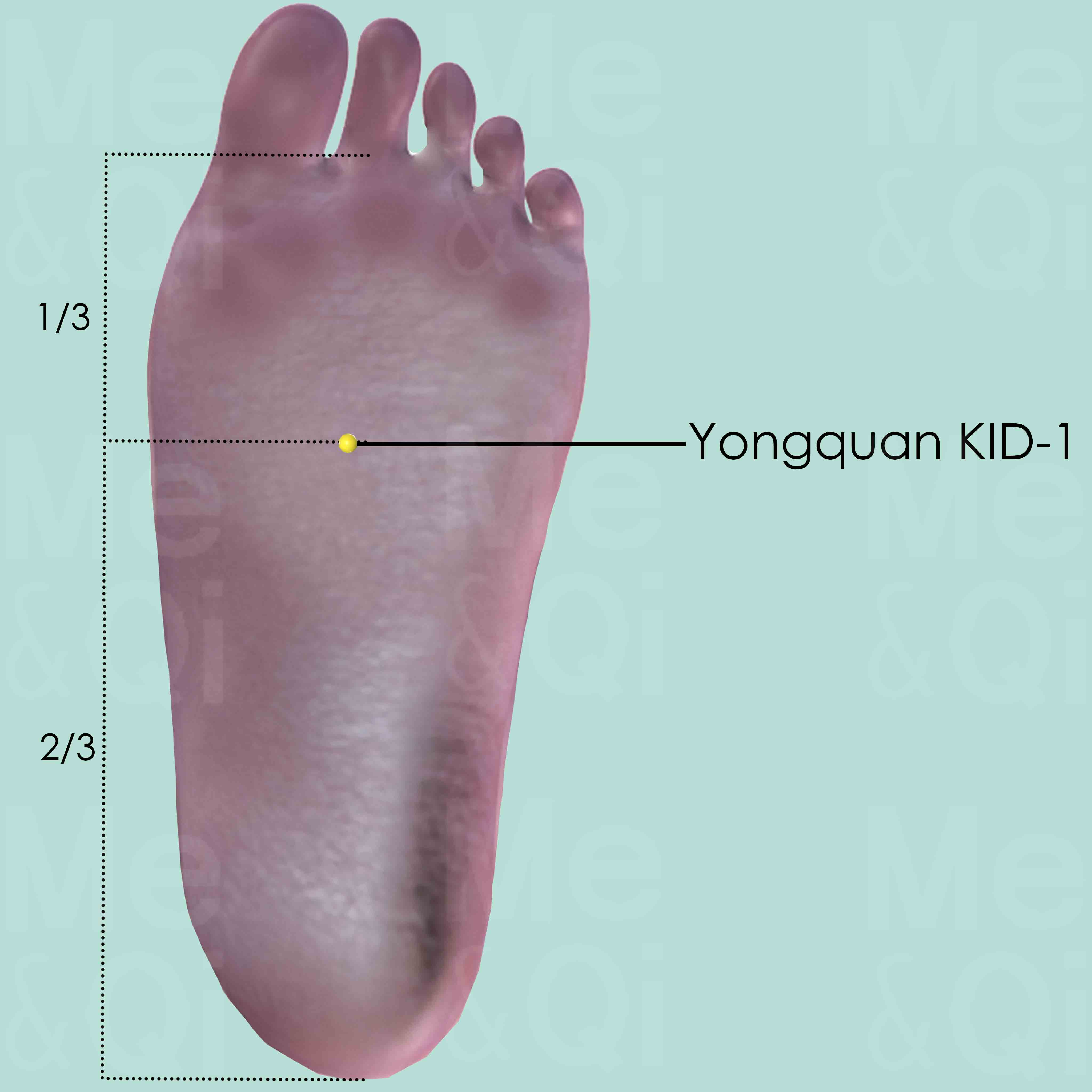
Yongquan KID-1
In the depression between the 2nd and 3rd metatarsal bones on the sole when the foot is in plantar flexion, approximately at the junction of the anterior and middle third of the sole.

